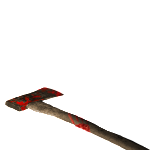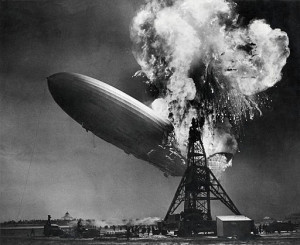Steven Ramirez's Blog: Glass Highway, page 41
May 2, 2013
Finding the Voice
Photo by Marcelo Henrique Zacarelli via Creative Commons The other day I had a conversation with a neighbor who was unaware that I’m a writer. On hearing this he became enthusiastic and told me he’d secretly wanted to write a novel for some time. He’s a graphic artist by trade and has written a number of technical manuals over the years. Writing fiction would be quite a challenge, and he was worried that he wouldn’t be up to it. I told him he needed to find the voice.
The other day I had a conversation with a neighbor who was unaware that I’m a writer. On hearing this he became enthusiastic and told me he’d secretly wanted to write a novel for some time. He’s a graphic artist by trade and has written a number of technical manuals over the years. Writing fiction would be quite a challenge, and he was worried that he wouldn’t be up to it. I told him he needed to find the voice.
“Find your voice,” he said. “Yes, I read that somewhere.”
“No,” I said, “find the voice.”
Every book has its own voice. Sure, ultimately it’s your voice, but I’m talking about the tone and character of a particular novel. And finding the voice is hard sometimes. I’ve been working on my zombie novel for almost a year now, and it wasn’t until recently that I actually found the narrator’s voice. This was particularly gratifying since the book is told in the first person.
So how does a new writer get started?
Begin Small
Write a short story. One of the best ways I know of is to take a powerful memory and tell it. It can be funny or sad or scary—whatever it is that gets you excited. Include details about the characters. Try to recall the dialogue and write it down the way you hear it in your head. Take Elmore Leonard’s advice and “leave out the part that readers tend to skip.”
I recall a writing class I took in school many years ago. We read our work aloud. Some of it was good, some not so good. One young woman wrote about a calf. Apparently she grew up on the farm, and the way she described that animal, the sounds it made, how its fur smelled and felt, well. It was magical. We could tell she loved the animal. We could feel it in her words. She had found the voice.
If you’d like a recommendation, read A Christmas Memory by Truman Capote. I mention it because this is the same guy who wrote In Cold Blood and Breakfast at Tiffany’s. Talk about voices!
Read Aloud
I do this constantly, and it irritates the hell out of my family. I sit in front of my computer and read aloud chapters of my book. And let me tell you, if it doesn’t sound good out loud, it’s going to stink on the page. This is especially true for dialogue, which I’ll cover next.
I’ve been thinking about recording myself and playing it back so I can concentrate fully on the words. I’ll let you know how it goes. That brings to mind an old Woody Allen joke. He purchases a tape recorder and, as he speaks into it, it says, “I know, I know.”
Watch Movies
What’s amazing to me about dialogue is this: as social creatures we spend a good portion of our lives talking and listening. Yet when it comes to writing dialogue for our characters, it often comes out stale and wooden. Why? My theory is that some writers have an ear for dialogue, and some don’t.
Take David Mamet. Go watch ‘Glengarry Glen Ross’ and tell me this guy doesn’t know dialogue. Then watch ‘Star Wars: Episode III – Revenge of the Sith’ and prepare to die from despair. Seriously, this would have worked much better as a silent movie. Just sayin’.
If you are one of those people with a tin ear, don’t give up! Like improving your golf swing, writing good dialogue is a skill that can be developed with practice. Watch movies, read screenplays and stage plays. Listen to the conversations going on around you—I mean really listen. Imagine what the words look like on paper.
Get Feedback
This is important. One of the best ways to do this is to join a writers group. They’re out there—especially on Facebook. Better yet, try to find one in your area that meets in person. I used to be a member of a screenwriting group. We engaged weekly in slashing and burning each other’s work. How do you think I got this thick skin? Trust me, though, this kind of criticism—if it’s well-intentioned—will make you a stronger writer. Scarred but stronger.
But What About My Novel?
Start making notes. If you have a story with strong characters and themes, and you are convinced it will make a book, there’s no reason why you shouldn’t begin sketching it out. But craft is everything. And you really want to be in shape before attempting a marathon.
Here are some books that might help:
On Writing by Stephen King (if you read nothing else, read this)
Write Great Fiction – Plot & Structure by James Scott Bell
Techniques of the Selling Writer by Dwight V. Swain
Save the Cat! by Blake Snyder (this is about screenwriting but you will learn a ton)
These are just a few ideas. Which things would you recommend to someone who is just starting out? I look forward to your comments.
Related articles
How to find your authentic writing voice (lessonsinselfpublishing.com)
Write great dialogue scenes in 7 steps (nailyournovel.wordpress.com)
Writing With Writers (mridenour.wordpress.com)

Link to this post!

April 25, 2013
Tell Me When I’m Dead—Coming Summer 2013!
 Everything was fine till that horrible summer night when Hell came looking for Dave Pulaski and the good people of Tres Marias.
Everything was fine till that horrible summer night when Hell came looking for Dave Pulaski and the good people of Tres Marias.
It wasn’t supposed to go this way. A recovering alcoholic, Dave is getting better. He and his wife, Holly, plan to start a family. He has a steady job and is going to school. His life is finally on track.
One night Dave’s best friend, Jim, shows up drunk. Dave drives him home, but on the way he swerves to avoid a rabid dog and they crash. When Dave regains consciousness, Jim is gone. Only a bloody, ragged hole in the windshield remains.
Missy, the woman Dave cheated with, wants him back. Meanwhile half the people in town have come down with “the jimmies,” a condition that leads to death. But instead of staying dead they transform into ravening flesh-eaters. One of them attacks Missy. Rather than help her, though, Dave runs. Now Missy wants revenge.
A private security company called Black Dragon is dispatched to restore order. Soon they discover that in addition to the outbreak they must battle the Red Militia, a paramilitary group led by a charismatic madman. And as conditions in the town worsen, it becomes clear that Black Dragon’s security chief might just be coming unhinged.
In all of this quickening chaos, Dave, Holly and a small band of soldiers and civilians must find a way to survive. But can they? The town is quarantined. Security forces are outnumbered. The hordes of Undead are growing. Nowhere is safe.
Hell has arrived in Tres Marias.
Here’s the teaser trailer.
Link to this post!

April 18, 2013
World Building for Space Opera Writers
 Send to Kindle
Send to KindleBy Merita King
 Today I am pleased to offer this guest post from Merita King, a prolific author of science fiction and space opera novels. Today Merita talks about the joys and challenges of creating your own sci-fi universe in story.
Today I am pleased to offer this guest post from Merita King, a prolific author of science fiction and space opera novels. Today Merita talks about the joys and challenges of creating your own sci-fi universe in story.
As a writer of space opera novels, you are God. You are the creator of the universe and it is your hand that brings life to the void. This is a huge responsibility but it is also huge fun. It seems complicated but it doesn’t have to be. You must make your worlds and their inhabitants seem real enough so the reader can recognise them and identify with them on an emotional level but alien enough so readers will know they are in a different world.
You can go into as much or as little detail as is necessary for your story and it is the story that will determine how much depth is needed. You may simply need to create a realistic space ship environment if your story takes place there, or you might have to build entire galaxies or solar systems with several inhabited planets and races of beings. The bottom line is plausibility and this should be uppermost in your mind as you create. Much of it will need a little research but there will be just as much where you can let your imagination run free – within reason.
Let’s break it down into easy steps.
The Astronomical Facts
When building an entire solar system, a little knowledge will go a long way. So long as you stick to known facts, you can build around them creatively.
In every solar system there is an area called the goldilocks zone. This means that planets can only sustain life when they are a certain distance from the sun; not too close and not too far away. When placing your planets, be aware that the solar system will likely contain many planets, most of which will be uninhabitable due to their distance from the sun. Don’t have too many inhabited planets in your solar system or you’ll have all the astro nuts calling you out. What I do is name my planets in a numerical system. For instance, in my series The Lilean Chronicles, my protagonist Vincent comes from a solar system called Lilea. The only inhabited planet in the Lilean system is the fourth planet out from its sun, so I named it Lilea 4. I do this with all my solar systems; it’s simple, accurate and everyone can understand it.
All planets have Polar Regions but they don’t have to be icy. The same goes for equators, all planets have them but they don’t have to be fiercely hot. Polar Regions will be colder than the rest of the planet though and equators will be warmer. That’s simple physics so stick with it and build around it.
All planets must have water, so oceans are a necessity. The same goes for trees and plant life, without which there would be no air to breathe. Again, you must have them but you can design them as you see fit.
It would be wise, and more accurate, to have a range of environmental conditions on your planet. Dry hot areas, temperate zones, wet areas, etc. This will make your world more real to readers.
Remember that planets orbit their sun at different speeds, due to their distance from it so their days will be longer or shorter. You can be flexible with day length but I find it best to stick to a few hours either side of 24 to avoid complicating things too much. Every time your characters talk about time, you will have to remember and incorporate information to explain this, which is why I stick to between 24 to 28 or so.
It would be wise to give your inhabited worlds at least one moon. The reason for this is that the moon governs tides, keeps water flowing, gives light at night and many animals use it for navigating. Things are easier with a moon so make sure you have at least one. Moons are also useful as storage areas, mines, prisons and all manner of other interesting activities your aliens can do.
Space is big. Incredibly, vastly, hugely big and your descriptive writing must show this. Travel between planets and systems takes time, lots of time, so you can’t have your protagonist hopping across systems to visit Aunty Mary for afternoon tea. If your story involves travel between worlds you will have to either ensure something happens along the way to give subtle illustration to the fact that a long journey is taking place, or simply say something like “three months later Adam arrived at Planet Zog.” It may seem like you’re teaching readers to suck eggs but this stuff matters and they’ll notice if it’s missing.
The Aliens Themselves
When creating alien beings, you have two choices. You can either make them humanoid based or non-humanoid. At the end of the day, this comes down to personal preference. Personally, I have problems identifying with sentient, free thinking blobs of blue goo or many tentacled, five eyed slime creatures piloting space ships and operating complicated machinery. My aliens are always recognisable as humanoid. They have two arms, two legs, two eyes and genitals between their legs. Beyond that, I’m fairly creative and they are different colours, shapes and designs and have all manner of differing abilities and flaws. I do this because I believe that readers will identify more quickly and easily with a creature they can recognise than with one they can’t. I want to engage readers not challenge their beliefs.
Naming your aliens needs care. What I want is a name that is easy to say, fairly exotic sounding but one that doesn’t automatically make me think of a particular Earth race. For instance if I named an alien Cohen, readers would automatically think “Jewish.” Likewise with other names that are obviously from a particular known Earth race or culture. Your alien names must be free of such identifying features. In The Lilean Chronicles I had an alien character that needed a name so what I did was to first identify his social position. This character is royalty so I needed a name that sounded refined but bland and without particular identifying attributes. I chose the name Thomas and began with that. Now, Thomas isn’t really that exotic so I played with the spelling. I dropped the H and S and was left with Toma. This sounds refined, a little exotic but easy to say and remember. I always start with an ordinary name and play with it. Try it and see what you can come up with.
Remember that your aliens will come from cultures that might have a very different social structure to those we experience and will not always have a royal family, president or despot leader. They may be ruled by community agreement, by a race of elders with special powers or a myriad other governing systems. Be creative but also remember that royalty and presidents will be commonplace too, although they won’t necessarily be named as such.
Your aliens will have abilities, flaws, diseases and personality traits that will be unique to their own race. Some races may have a warrior mentality whilst others may be highly spiritual. Some will suffer from one particular ailment that no other race will experience. Make your aliens unique to their own race and they will have their own identity that readers will recognise. It makes them real and believable.
They will have all of the same social problems that we experience every day. They’ll argue about money, politics and religion. They will get horny and want a mate, they’ll suffer emotionally when loved ones die and they’ll want to be rich and successful. They fall in love, fall out of love, make war, sing, dance and get drunk. They’re just like us in so many ways; don’t make them too alien.
The Science Stuff
The best part of writing space opera is being able to invent lots of cool stuff. A word of warning here though – make sure everything you invent, whether it be a gadget or disease, is based on at least a thread of today’s known science fact. Again, this will make it more believable for the reader and the more believable it is, the more enjoyment they will get from it. When your readers enjoy your book, they’re more likely to tell their friends about it and you know where that might lead.
This is another place where a little research goes a long way. In all my books, my characters use laser firearms of various types. We already know that lasers can be used as weapons so I invented a whole range of laser firearms for my characters to use. I didn’t have to go into any details about the workings of the laser, but I was able to give them a basis in today’s known science to make them believable to the reader. I was able to then be as creative as I wanted and build upon that seed of known fact.
This brings me to another useful thing about the science stuff. You don’t have to go into detail about the gadgets beyond naming them if you really don’t want to do the research. For instance, in The Lilean Chronicles, one of my alien races have technologically advanced space ships. Now, I know zip about the workings of engines and I didn’t fancy doing weeks of research that I could then build on, when the space ship engine itself was only likely to get a paragraph or two mention. What I did was name the power source but leave it at that. I gave their energy source a name and a basic description of how super powerful it is but no more than that. Readers would quickly get bored with a ten page description of the detailed workings of my alien space ship engine anyway, so the old adage that less is more, works when something is just too complicated to go into.
It’s the same with the diseases and ailments your aliens will experience on their travels. Base them in today’s known medical knowledge and build from there. Know the difference between a virus and a germ, get to know basic anatomy and you’ll have a foundation of truth and plausibility that will make readers feel right at home in your universe.
To sum up, have fun inventing your universe but remember that readers need to be able to identify with your characters and their lives. People are simple, they need spoon feeding and at the end of the day, books are for entertainment not for a challenge. Base everything upon a seed of today’s known truth and your universe will come to life in an exciting but believable way.
I am the author of The Lilean Chronicles and The Sinclair V–Logs. Both of these series are available from all good online retailers in both paperback and e-book formats. My website is www.meritaking.com.
Related articles
Stephen Hawking: Humanity Must Colonize Space to Survive (space.com)
Creation: Our Solar System (fellowshipofminds.wordpress.com)
The Cost of Exploring Space: Film vs. Reality [Infographic] (business2community.com)

 Send to KindleLink to this post!
Send to KindleLink to this post!
April 11, 2013
When Bad Things Happen
 Send to Kindle
Send to Kindle This has nothing to do with writing or the business of writing. It’s a cautionary tale about the joys and sorrows of technology as it relates to this author’s website.
This has nothing to do with writing or the business of writing. It’s a cautionary tale about the joys and sorrows of technology as it relates to this author’s website.
Last night, I did something really stupid that resulted in me wiping out my WordPress database. For those authors out there who use WordPress, I know you are screaming in horror—or at least your palms are sweaty. I won’t go into what I did. This was not a crash, I wasn’t hacked, and a meteor didn’t strike my provider’s data center. No, it was just plain ol’ stupidity on my part. For the next several hours, I basically lived Elisabeth Kübler-Ross’ five stages of grief. Here is my report.
Denial
I didn’t just press that button. No, I was just checking something in the admin console. Nothing happened. I’m fine, really.
Anger
Son of a— I can’t believe I did that! And who is the idiot who designed that console to make it easy for people like me to wield so much power? I should sue—yeah, that’s it—I’ll sue my provider!
Bargaining
Please let there be a way for me to get everything back. I promise I’ll lay off the Mike and Ikes. I won’t use the far entrance at Vons because the homeless guy hangs out at the other one. I’ll be good!
Depression
I’m screwed. Might as well put away my novel, donate my laptop to Goodwill and dig a hole to live in. I wonder if Wal-Mart is hiring.
Acceptance
Okay, I know what I did, now how do I fix it?
This is actually the best place to be. Finally I took a deep breath and realized that I actually had options. For one, I create nightly backups of my database. All I had to do was to get back into the console and restore the database.
Bad news. The SQL file was too large and the restore kept timing out. Now what? Fortunately, my provider also creates nightly backups that sit on the server. That’s good news. But it costs $150 to restore the database.
What did I opt for? I paid the money, of course. That was an expensive lesson but guess what—I won’t ever make that mistake again. And once my site was restored, I used the console to create a database backup on the server, where it can actually be restored without me paying another $150.
Why tell you all this? Because bad things will happen, and when they do it does absolutely no good to panic. You have to look at your options and go through them one at a time till something works. Of course, there’s still a bit of bad news. Though my site is back up, there are reader comments missing from my last post—wonderful comments that cannot be retrieved.
All in all, a small price to pay. Things could have been a lot worse—in fact, I don’t even want to think about how bad this situation might have been. For all you other writers out there, be careful with that WordPress database. And for pity’s sake, back it up on the server! Consider this your final warning.

 Send to KindleLink to this post!
Send to KindleLink to this post!
April 4, 2013
Why Are We All So Scared?
 Send to Kindle
Send to KindlePhoto by ia7mad via Creative Commons Over the last two years I’ve met quite a few writers, some quite successful and others—like me—just starting out in indie publishing. Overall there’s a lot of value in being part of a writing community. We share ideas on how to get better at what we do and talk about our successes and failures. After months of reading and posting, though, I’ve come to the conclusion that on the whole we’re scared.
Over the last two years I’ve met quite a few writers, some quite successful and others—like me—just starting out in indie publishing. Overall there’s a lot of value in being part of a writing community. We share ideas on how to get better at what we do and talk about our successes and failures. After months of reading and posting, though, I’ve come to the conclusion that on the whole we’re scared.
What led me to this conclusion, among other things, is the recent announcement that Amazon plans to purchase Goodreads. And what a dust storm that bit of news set off! Doom and gloom. The end of book reviews as we know them. “Human sacrifice, dogs and cats living together, mass hysteria.” Sorry, I don’t know how ‘Ghostbusters’ got in there. You get my point though.
What are we so worried about?
Writing as a Business
Let’s start with the basics. Amazon is a public company. Here is their mission statement:
We seek to be Earth’s most customer-centric company for four primary customer sets: consumers, sellers, enterprises, and content creators.
But let’s be honest. Like any other publicly traded company, Amazon’s real purpose in life is to return value to its shareholders. Over the last several months we’ve seen them do everything from experimenting with the Like button to taking away tags for many book titles to creating a Send to Kindle widget for your website. They’re an innovative company—and one to reckon with when it comes to its competitors. But in the end they’re a business. They must continue to grow. And how does one grow? By acquiring other companies for one thing. Companies like Goodreads.
In a recent article in The Atlantic (“The Simple Reason Why Goodreads Is So Valuable to Amazon”), the author argues that the acquisition makes sense. Amazon needs super fans—book worms who read far more than the average consumer. Whatever the real reason, it was a smart move and Amazon should be applauded.
Which leads me to my point, which is that writing is a business too. We are not starving artists trying to give something eternal to the world born out of blood, sweat and tears, hoping that we can eke out a modest living while receiving scant praise from obscure academic journals. No, we’re trying to make a buck any way we can. And the last time I checked, writing is way better than cleaning out the grease traps at McDonald’s.
You Cannot Control the World
I gave up trying to control the world a long time ago. I figured out that (1) it’s a thankless job and (2) there’s no money in it. Better to concentrate on the things I can control—like my writing.
So when things happen like Amazon buying Goodreads or Washington State legalizing marijuana, I tend to shrug and move on. No matter what happens in the rest of the world I still have to work every day to write the best book I can, market it effectively and hope that someone out there will decide to buy it and maybe even write a positive review. That’s it. There’s nothing else to be done. Stop obsessing already!
You want to know whom I admire? Joe Konrath. You should read his blog. After more than a decade of writing and publishing, the dude just doesn’t give a hoot about things that other writers fret over. Amazon buys Goodreads? Pishposh. Someone publishes a scathing one-star review for one of his Jack Daniels mysteries? Can’t please everyone. Joe just keeps writing and publishing. And, if his sales figures are to be believed, he makes a nice living. We should be so lucky. Mazel tov. Sorry, for a second there I was channeling the little Jewish man who dry-cleans my slacks.
But You Don’t Understand!
Oh, I understand—believe me. In many ways, writers are control freaks. Why? Because we are used to controlling our brains in order to get something down on paper worth reading. And it’s not easy, let me tell you. There are a million things we’d rather do than write. Think about it. Who wants to spend all day sitting in a cold, lonely room typing away while other people are out there having fun? Why do you think so many screenwriters hang out at Starbucks? And because we are control freaks, we are suspicious when anything in the indie publishing landscape changes. Anything.
Have you ever watched horses graze? I have—I used to own a horse as a matter of fact. They don’t just eat—they observe. Everything. Other horses, trees moving in the wind, that weird guy over by the barn. Everything. The slightest anomaly—anything that changes their surroundings and looks like it might cause harm and they’re out of there.
“But I’m not done eating!”
“Shut up, Frank. I don’t like the look of that anomaly. We gotta go!”
That’s us—writers. We just can’t concentrate on the task at hand and filter out all the other nonsense. But worrying that something will change doesn’t sell books. Great writing sells books. And great businesses concentrate on things that make money—like selling books.
Now if you’ll excuse me, I forgot my power cord and need to leave my nice cozy chair here at Starbucks. Stupid four-hour battery.
Related articles
Amazon buys Goodreads: We’re all just data now (salon.com)
Some Authors Devastated Over Amazons Purchase Of Goodreads (landbar.wordpress.com)
Writing Is Meditation (brianbbaker.com)

 Send to KindleLink to this post!
Send to KindleLink to this post!
March 28, 2013
Happy Easter 2013!
 Send to Kindle
Send to Kindle
Happy Easter to all. May your life be filled with peace, love and happiness.
 Send to KindleLink to this post!
Send to KindleLink to this post!
March 21, 2013
If the Writing Doesn’t Kill You
Photo by Dave Pearson via Creative Commons Honestly, I should know better. For weeks now, I’ve been pushing myself to finish my zombie novel, get a book cover designed and schedule time on my editor’s calendar in order to publish this thing by Summer 2013. And you know what? I’m exhausted!
Honestly, I should know better. For weeks now, I’ve been pushing myself to finish my zombie novel, get a book cover designed and schedule time on my editor’s calendar in order to publish this thing by Summer 2013. And you know what? I’m exhausted!
It really hit me last Friday. My wife sensed it when I would stand there staring glassy-eyed as she gave me some kind of instructions having to do with the girls, the dog, dinner—who in hell remembers? And I guess I must have nodded and said “Okay” in a Homer Simpson voice, then continued on in that liquid, wall-eyed trance till she shook me out of it again with another list.
Come to think of it, I haven’t been sleeping well either. And the little REM sleep I did get was spent on dreams about men with fake hair and big teeth, and women who laugh too loudly. Actually, that last part can probably be attributed to the fact that I recently watched ‘Strictly Ballroom.’
Self-Publishing is Hard
The main reason writers self-publish is to take control of their destiny. Well, guess what. It’s a lot of work! You are now the person in charge of writing, editing, publishing and marketing the book. You have only yourself to blame if things don’t happen—or happen in the wrong sequence. It’s all you, baby. Welcome to Hell.
Not that I’m complaining. I chose to do this. It’s just that there are only so many hours in a day, etc. And although I’ve published short stories for more than a year, this is my first novel. It’s a huge undertaking.
By the way, in case you’re interested, the book I’m publishing is called Tell Me When I’m Dead. It’s a contemporary zombie novel set in Northern California. More on that later.
It All Creeps Up on You
Writing is, in many ways, the easy part. I find a quiet spot and bang out the words. When I was writing the first draft of my novel, things went fairly smoothly. When I wasn’t actually writing, I was thinking about the book and where it would lead me. Pure paradise compared to what I’m doing today.
Now it’s heads-down work. Create a marketing plan, purchase book templates, find someone who can format the eBook, ISBNs, bar codes, blurbs—it’s endless! In the latest draft of my book I quote song lyrics, and the other day I learned that I could be opening myself up to a big fat lawsuit—so out those go!
Again, I’m not complaining, but I am tired. I should have paced myself.
Lesson Learned
I have to say that it was my wife who insisted I take off the weekend and just veg. And that’s exactly what I did. I caught up some movies—including ‘Argo,’ which was fantastic by the way. Though I’m still somewhat stressed, I do feel better.
I’m sharing this cautionary tale with you because I know there are a lot of writers out there going through the same thing. You should never let yourself get to the point where you mentally flatline. The key is to breathe deep. I continue to remind myself—and my wife does too—that my deadline to publish is self-imposed. Because of all the things that need to happen now, though, there is no real advantage to putting it off. Because all those things would just have to get done later.
Now if you’ll excuse me, I’m going to find a paper bag to breathe into and watch ‘Charlie the Unicorn.’
Related articles
Am I Good Enough? (stevenramirez.com)
More Stress-Inducing Wise Words from the King (dreamama.wordpress.com)
When It’s Done (bentrubewriter.wordpress.com)

Link to this post!

March 14, 2013
Am I Good Enough?
 Douglas Adams had a name for it. In fact, it was the title of one of his books: The Long Dark Tea-Time of the Soul. Sounds dreamy, right? Adams used the phrase in the service of his second detective novel featuring Dirk Gently. In the book, Adams deals with man-made gods who, no longer worshipped, have become destitute, as well as with Gently’s crippling guilt.
Douglas Adams had a name for it. In fact, it was the title of one of his books: The Long Dark Tea-Time of the Soul. Sounds dreamy, right? Adams used the phrase in the service of his second detective novel featuring Dirk Gently. In the book, Adams deals with man-made gods who, no longer worshipped, have become destitute, as well as with Gently’s crippling guilt.
For me, though, the phrase aptly sums up that miserable time between two and four in the morning when your eyes fly open suddenly from a troubled sleep, you sit straight up and ask yourself, “Am I good enough?”
If you’re a writer, you know exactly what I’m talking about. All that nonsense about opening a vein and finding your muse—it’s rubbish. What really matters to a writer is Do they like me? Consider this quote from Adams’ book:
There are some people you like immediately, some whom you think you might learn to like in the fullness of time, and some that you simply want to push away from you with a sharp stick.
We all want to be that first guy, but will grudgingly settle for the second. And, God help us, we live in horror of third when it comes to our books.
It’s All Amazon’s Fault
In the world of traditional publishing, publishers actually saved you a ton of time with something called a rejection letter. It was short, painful and private. No one else in the world needed to know that you just had your kiester handed to you because you were not deemed good enough to have your words committed to paper. Over the years, you collected these things like parking tickets and continued writing till you actually produced something that a publisher would accept. You were, according to these great and powerful Wizards of Oz, good enough.
Now it’s actually worse, and it’s all Amazon’s fault. Indie publishing has made it possible to put whatever you want out there in no time at all. Never mind that the cover is cheesy and the text is filled with mistakes and sloppy prose. Never mind that you rushed to finish the last third of the book. Just hit the Publish button and you’re golden! Now the entire world can—well, not reject you, of course. No, it can do something much worse. It can ignore you. Ouch.
The Thrill of Failing
It’s precisely because I am planning to publish my new zombie novel this summer that I am plagued by thoughts of inadequacy. During the daylight hours, I go happily about my business, revising my manuscript, finalizing the book cover and experimenting with eBook formatting. But it’s at night when The Doubt hits me. And it hits hard, son, let me tell you. Sure, I’ve published a number of short stories that have gotten some lovely reviews. But this is a novel we’re talking about. It’s the majors, and I don’t know if I’m good enough.
Nothing ventured, nothing gained. Remember that one? I keep telling myself that I need to try this. The book, regardless of how well or poorly it’s received, will give me the courage to try another, and another. And that’s a writer’s life. You keep at it because you have no choice.
Nevertheless, failing still sucks but it’s instructive. No one ever does a post mortem on their successes—only the failures. And with failure, you pretty much have a nice blueprint of what not to do next time.
Stay the Course
So what do you do? You keep going. One thing that’s important to remember is to keep your doubts and fears from sabotaging your current efforts. Writing is something you have to work at every day. And every day, if you’re doing it correctly, you get a little better. This is what I tell myself.
Here’s a final thought. There’s nothing more thrilling than thinking you’re going to fail and succeeding wildly against all odds. That’s an experience worth having. Just make sure that whatever it is you’re slaving away ends up with a better title than Romeo and Ethel the Pirate’s Daughter. Come to think of it, the right title may be the key to the whole thing.
Related articles
Remembering Douglas Adams (storiesbywilliams.com)
Writing a book should be fun, not a pain in the ass (becomeanauthordotorg.wordpress.com)
10 Ways to Overcome Creativity’s No.1 Crusher (psychcentral.com)

Link to this post!

March 7, 2013
Don’t Write That Screenplay!

February 28, 2013
Let’s Talk Movies!—Juan vs. Shaun

Glass Highway
- Steven Ramirez's profile
- 176 followers




